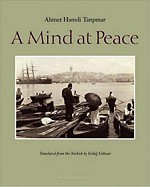Book Review: Readings
Mona Yahia
Reviewed by Rayyan Al-Shawaf, Fri., May 11, 2007

When The Grey Beetles Took Over Baghdad
by Mona Yahia
George Braziller, 358 pp., $22.50
Before their mass exodus in 1950-'51, Jews were an integral part of the Iraqi social fabric. At the close of World War I, more than one-third of Baghdad's inhabitants were Jews; by 1950, they still constituted one-sixth of the capital's rapidly expanding population. Several novels and memoirs by Iraqi Jews vividly depict Baghdad before the midcentury exodus. The University of Texas Press recently published the third installment of Israeli intellectual Nissim Rejwan's memoirs, the first volume of which deals almost exclusively with his life before he left Iraq in 1951. Yet what of those Jews – about 5,000 – who stayed behind?
Little of note has been written about the dwindling Iraqi Jewish community of the 1960s and 1970s. Mona Yahia's semiautobiographical novel, When the Grey Beetles Took Over Baghdad, helps fill this lacuna by portraying the blossoming of a young Jewish woman in a climate of rising anti-Semitism. The result is a profoundly moving coming-of-age tale infused with valuable historical insight. Lina, the narrator, grapples with adolescence as her country embraces jingoistic ethnic chauvinism. Of the martial music so often played on the radio, she observes: "It used to electrify me, too, especially the marches. But now that it shuts me out, the cannons and missiles evoked by the music seem to be aimed in my direction."
Deprived of telephone lines, denied passports, and forbidden from traveling, many Jewish families regret not having left when given the chance and scramble for a way out of Iraq. Yet avoiding detection proves difficult. Indeed, the title of the book refers to the Volkswagens driven by members of the domestic intelligence service, a ubiquitous presence in the nerve-racked lives of the Jewish community. Soon, Lina's older brother, Shuli, is arrested on suspicion of Zionist activity. He will be released, but others won't be so fortunate, as becomes apparent from the moment their trial begins. "The defense counsel, a civilian appointed by the court … opens his speech with an apology for having to plead for the traitors of the country."
When, in 1969, the Baath regime executes several such alleged traitors – most of them Jewish – banners raised at the public hanging read: "This Is Only the Beginning. The Squares of Our Noble Iraq Will Be Filled With the Corpses of Spies." Lina's sarcastic friend Dudi, whose father has been detained, says, "[W]hat will they do when they run out of Jews to hang?" Very soon, the rest of Iraq's population will find out.
Like the novel's protagonist, Yahia was born in Baghdad in 1954 and escaped to Israel in 1970. The years in between were marked by mounting insecurity and alienation. Consequently, her book differs markedly from the nostalgic reminiscences of Jewish life in Iraq before the mysterious bombings and sudden exodus of 1950-'51, an era largely distinguished by the assimilation of the Jewish community. Yet Yahia's caricaturesque depiction of most Iraqis as boors devoid of redeeming qualities, a clear indication of the continued rawness of the author's pain, proves unsettling. Fortunately, the story remains enthralling despite this serious limitation. Raised in an Arab country passing through the height of its Blut-und-Boden phase, Yahia memorably dedicates this book "To my parents, who gave me languages instead of roots."










